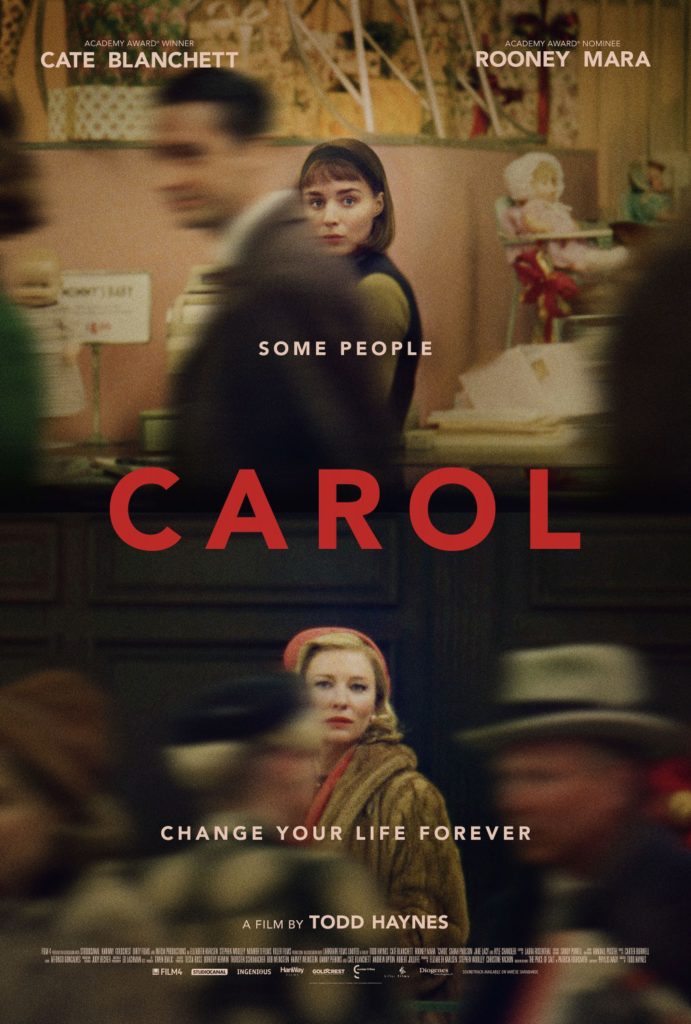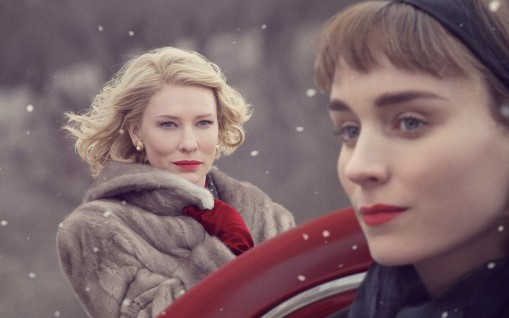You may not have heard of the movie Carol, but you will. It’s slowly being released in more theatres throughout the nation and it’s already gathering award-worthy buzz and for good reason. It’s being hailed as the best movie of the year. Critics and casual movie-goers alike have expressed how the movie captivated them without them realizing how fast they were falling into it. They praise Todd Haynes as the best director to bring Phyllis Nagy’s screenplay to life in the most precious, delicate, and emotional way. Cate Blanchett plays the titular character with honed grace and Rooney Mara, as Therese, captures raw wonder and feeling as her opposite. This movie may not be for viewers who have little preference and patience for prolonged paces and gazes, but consider this: For some love stories, the love and trials a couple may experience can be overwhelming, to the point that the world around them and the feelings they have are kept at a suspension that’s difficult to articulate but real enough to feel.
The film is set in the 1950s and the love story between Carol and Therese begins on a brief encounter. Therese is a shopgirl, an amateur photographer, and inexperienced in love. Carol is a housewife, a mother to a daughter she cherishes, is divorcing a man she doesn’t love, and had a previous secret relationship with another women. The ’50s were obviously not the most accepting of a lesbian relationship, but that aspect remains as the frame and setting of the movie rather than the driving antagonistic force for Carol and Therese’s budding love. At the core of it, their relationship is the main focus of the movie and the catalyst for revelations and struggles that both characters undergo. The authenticity of their emotions and experiences are captured so well that by the end of the movie, you really do feel for Carol and Therese.

Promotional poster for movie.
What’s so subversive about this movie is how it treats the two leading ladies under the premise of a love story. More often than not, for many romance movies, the heterosexual relationships involve women being seen as objects of pursuit and affection and it’s the men that seem to have any sort of character development. And, oddly enough, when the roles are switched, typically in romcoms, and it’s the woman who’s pursuing a man, there lacks a depth and understanding of what it means to truly desire being with someone.
Carol does it differently: it displays depth for both characters and upholds their integrity as two people who are in love. The movie is quite simple: two women find each other, they fall in love, and grow from it. There’s nothing exotic about the portrayal of their lesbian relationship. There’s nothing exotic about Carol and Therese and their love for each other. It is subversive that as women in love, they are treated honestly as humans experiencing feelings so moving and breath-taking. And hopefully, this becomes a standard for the treatment of female characters and the maintenance of their integrity as reflections of women.

